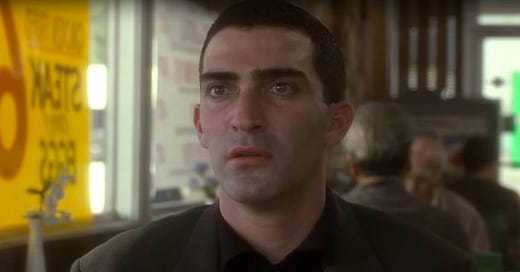David Lynch Films Ranked (3) Mulholland Drive
On what makes Mulholland Drive a landmark both in the Lynchian universe, and in resistance to the mangled industry of Hollywood
Mulholland Drive marks the beginning, if not the high water mark, of the consolidation of the Lynchian universe. Its shell of plot, in a far more immersive way than Lost Highway and Eraserhead, provides not only a slew of uncanny singularities that pin the film in time, but innumerable points of overlap with the themes and imagery of his filmography that combine to create a labyrinth annexed with conduits to other locations, both contained and not contained onscreen. It is also, perhaps, his most lush film, full of rapture and mystery that is equally sensorily pleasing as it might be uncanny.
Whereas much of Lynch’s career finds him tinkering in obscurity, Mulholland Drive is a bit of an out, and thereby full of a different kind of energy than you’ll find anywhere else. He’d originally shot the film as a pilot for TV, and when it was rejected by the studio, rather than shelf it, he decided to expand and convert it into a feature. Thus, much of the plot of the movie centers itself around the film industry as a vehicle of conspiracy, where artists are at the behest of a cryptic deep state (led by a shadowy figure played by Michael Anderson, an immediate amorphous juncture with Twin Peaks), and aspiring artists are the foils in a rigged game leading them to disillusion, horror, and ultimately, early death.
Keep reading with a 7-day free trial
Subscribe to Dividual to keep reading this post and get 7 days of free access to the full post archives.



